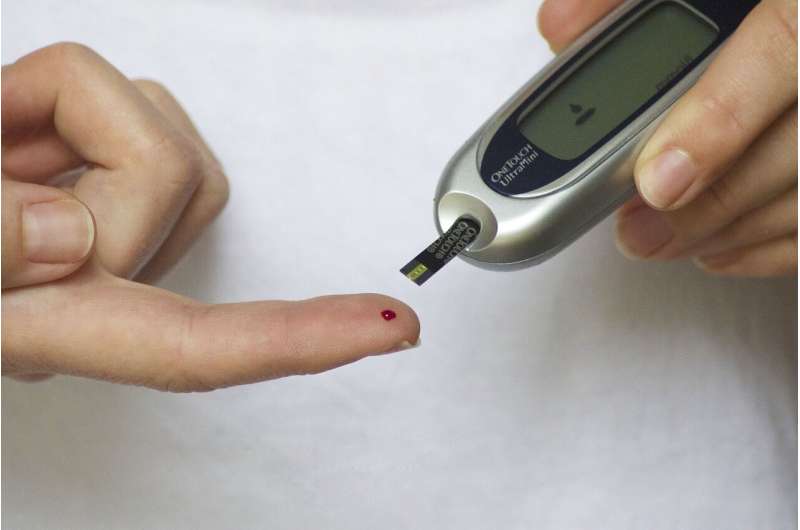Risk of diabetes complications increases with elevated levels of NT-proBNP

Healthy people—especially women—with elevated levels of the heart failure marker NT-proBNP have a lower risk of developing type 2 diabetes. However, if these people develop diabetes nonetheless, they are more likely to suffer from macro- and microvascular complications such as heart attack, stroke, or severe damage to eyes, kidneys, or nerves. These are the findings of a recent study by DZD researchers that has now been published in Diabetes Care.
The NT-proBNP molecule is a biomarker used to predict or diagnose heart failure. On the other hand, it has a positive effect on insulin and glucose metabolism. NT-proBNP stimulates the breakdown of fat in fat cells. In the animal model, higher levels of this peptide also showed a protective effect against overweight and glucose intolerance. Furthermore, studies suggest that people with elevated baseline levels of NT-proBNP have a lower risk of developing type 2 diabetes. But what is the effect of elevated levels of NT-proBNP in people who do develop diabetes? Do they suffer more frequently from diabetes complications? Researchers from the DZD partner German Institute of Human Nutrition Potsdam-Rehbrücke (DIfE) investigated these questions together with colleagues from Tübingen University Hospital, University College Dublin and the Federal Institute for Risk Assessment in Berlin.
First, the researchers analyzed samples from a case cohort consisting of all the incident cases of diabetes and a random sample of EPIC Potsdam to determine whether the concentration of NT-proBNP in healthy people has an influence on diabetes risk. "We found an inverse association between NT-proBNP concentration and future risk of type 2 diabetes. With every doubling of NT-proBNP levels, the risk of diabetes decreased by about 9 percent," said first author Anna Birukov of DIfE. The influence of the NT-proBNP concentration is even more evident in women. There, the risk of diabetes decreased by 20 percent when the concentration of NT-proBNP was doubled.
In samples from 545 people who later developed diabetes, the researchers then investigated whether there was a correlation between elevated baseline NT-proBNP concentrations in a still healthy state and the risk of vascular complications. In this group, 133 people later developed microvascular and 50 people macrovascular complications. "This showed that the NT-proBNP values are linearly associated with these diabetes complications," said Prof. Dr. Matthias Schulze, head of the study, summarizing the results. With each doubling of the baseline NT-proBNP concentration, the risk of severe damage to the eyes, kidneys or nerves increased by 20 percent and the risk of a heart attack or stroke by 37 percent.
"In the future, the measurement of NT-proBNP in plasma could be informative for monitoring the risk of diabetes-associated complications," Schulze said. The extent to which the peptide is suitable as a marker for the development of diabetes-related diseases should, however, be investigated in further prospective studies. The gender-specific associations between NT-proBNP and diabetes risk should also be validated in further prospective studies.
More information: Anna Birukov et al, Opposing Associations of NT-proBNP With Risks of Diabetes and Diabetes-Related Complications, Diabetes Care (2020). DOI: 10.2337/dc20-0553





















